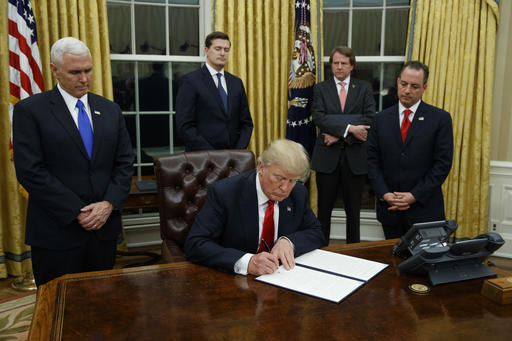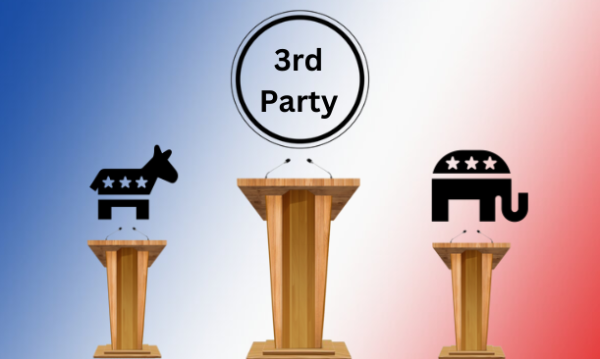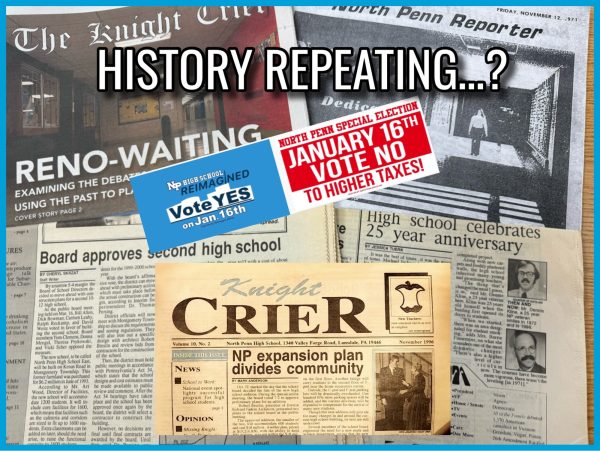Editorial: Examining political culture during Trump’s presidency

FILE – In this Jan. 20, 2017, file photo,President Donald Trump, flanked by Vice President Mike Pence and Chief of Staff Reince Priebus, signs his first executive order on health care in the Oval Office of the White House in Washington. After years of objecting to President Barack Obamas use of executive power to work around Congress, President Donald Trump and Republicans allies have all-but abandoned their public complaints about checks-and-balances and embraced the go-it-alone strategy to fast-track their dismantling President Barack Obama’s policies. (AP Photo/Evan Vucci, File)
Marked by his use of executive orders and executive actions, Trump’s first few weeks in office have been exciting to say the least. With the nation keeping a close eye on him, it seems as if every day a new controversy arises. Thus far, Trump has used his presidential powers to fulfill many of his promises, proving that he is, as he stated when he officially nominated Gorsuch as his supreme court nominee, “a man of [his] word.” Simultaneously, many of Trump’s actions have sparked protests and stirred frustration amongst his critics. Although accountability is typically a quality Americans like to see in their politicians, a poll conducted by Gallup revealed that Trump has a record low approval rating of 45%.
The low approval rating can be contributed to cleavages in American politics. According to Gallup’s article “About Half of Americans Say Trump Moving Too Fast” published on February second of 2017, “Americans are sharply divided along political lines on any number of issues, meaning that any newly elected president these days will find it difficult to develop bipartisan support for their presidency or for specific actions.”
In addition, Trump’s swift use of power has angered many Americans, especially those who disagree with his stance on contemporary hot button issues. Gallup reports that about half of Americans believe that Trump is “moving too fast.” In comparison, only 22% of Americans believed that Obama was moving too fast when he first took office.
In the same way that his campaigning style was unconventional, some of Trump’s uses of authority have been unprecedented. In particular, Trump’s executive order that placed a temporary immigration freeze on seven Muslim countries has been criticized by many as unconstitutional. According to CNN’s article “Trump’s first days in office spawn dozens of lawsuits” written on February first 2017, “Trump has been named in 42 federal lawsuits since his inauguration. By comparison, former President Barack Obama was named in 11 suits during his first 11 days in office.”
When the founding fathers wrote the constitution, they never intended the president to have much authority over policy. As the head of government, the president is responsible with carrying out the law, not making it. Congress, on the other hand, is responsible with lawmaking. Although critics dislike the inefficient system of passing legislation in congress, legislation is intended to be thoroughly planned out, debated, and difficult to pass in order to promote stability and discourage fast-paced, sweeping policy that the founding fathers feared would lead to tyranny.
Unfortunately, Congress is doing a poor job in the eyes of many Americans. According to a Gallup poll, as of Jan 4-8 of 2017, Congress had a whopping approval rating of 19%. Yet, according to opensecrets.org, a nonprofit, nonpartisan research group based in Washington, D.C., in 2016 the House of Representatives had a re-election rate of 97% and the Senate had a re-election rate of 90%. In other words, Americans are putting the same politicians in office that they disapprove of, which doesn’t make sense. With that in mind, perhaps Americans should be tweeting #notmycongress in place of #notmypresident.











